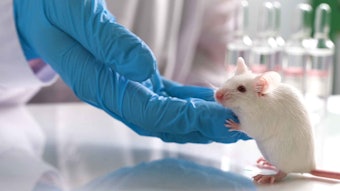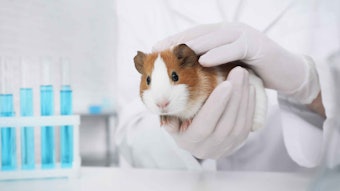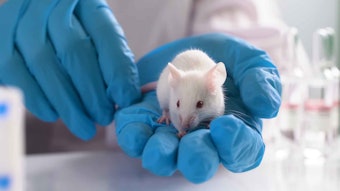Reducing animal use for the experimentation of drugs and cosmetics was the focus of a recent congress hosted at Sri Ramachandra University in Chennai, India. According to reports, India exports more than Rs. 200 billion in pharmaceutical products in addition to a growing number of cosmetics. However, as one expert put it, India may not be able to sell drugs and other products on the European market after 2013 if Indian companies do not comply with EU animal testing guidelines for such products.
According to a report by CalcuttaNews.net, the general law was designed to make manufacturers prove that the chemicals they use in products are safe, which means increased R&D and compliance requirements, including testing. Thomas Hartung, professor of pharmacology and toxicology and chief of the European Commission's (EC) Institute for Health and Consumer Protection, stated in the report, "Thirty years ago, 150 rats were required to do a single lethal dose (LD) testing to test the toxicity level of just one component. Now, just about 10 animals are used to test a new product's toxicity."
The European Union began lobbying to reduce the use of live animals two decades ago and now is driving a congress on "Alternatives to the Use of Animals in Research, Testing and Education." The first congress in India was hosted by Sri Ramachandra University and was supported by the EC's Centre for Validation of Alternative Medicine (ECVAM). The Indian co-sponsor was the International Centre for Alternative Research and Education (I-Care), an arm of the People for Animals, aided by The University of Meenakshi Academy of Higher Education and Research, the Indian Council of Medical Research (ICMR) and the Medical Council of India.
The European Union reportedly spent €25 million to develop alternative methods and another €10 million to assess the quality of the new methods adopted, succeeding in bringing its use of animals down from €30 million to €11 million. India's Committee for the Purpose of Control and Supervision of Experiments on Animals reportedly does not have a list of how many animals are used in the country for clinical trials.
S. Thanickachalam, the chairman and director of the Cardiac Care Centre and former vice-chancellor of the Sri Ramachandra University, reportedly said, "The congress is based on India's own tradition of nonviolence and will bring to India in vitro technologies and environment-friendly alternatives in teaching life sciences."
-CalcuttaNews.net









![A 2019 petition to the House of Commons stated, 'We, the undersigned residents of Canada, draw the attention of the House of Commons ... [that] animal testing is unnecessary to prove the safety of cosmetic products.'](https://img.cosmeticsandtoiletries.com/files/base/allured/all/image/2023/01/animal_testing_ban_canada_dreamstime_m_215632720.63d313232306d.png?auto=format%2Ccompress&fit=crop&h=191&q=70&rect=0%2C73%2C1800%2C1013&w=340)
